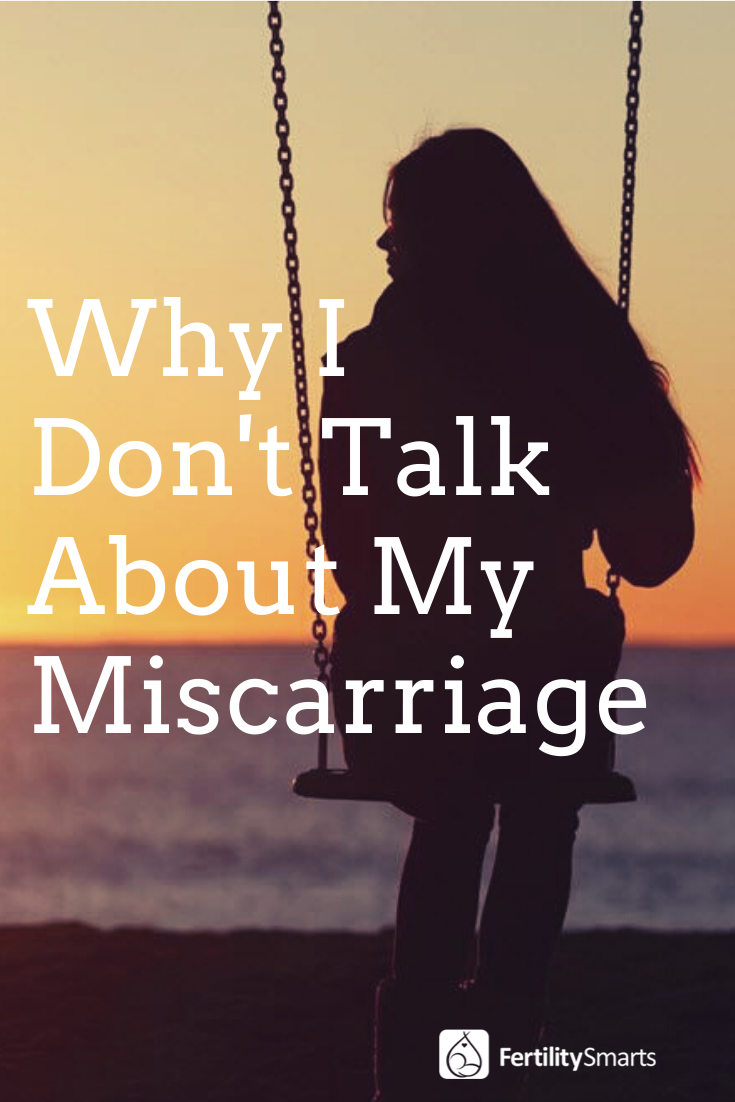
Source: AntonioGuillem/istockphoto
I know why I stopped talking about my miscarriage. Despite my loved ones and friends’ best intentions, I didn’t feel like the majority of their reactions acknowledged how deeply I felt about my experience. More often than not, I received what felt like off-the-cuff or trite replies.
People intended no harm, but the words stung more often than not.
The worst part is that these conversations made me feel terrible for taking the experience so hard and grieving for something so brief and intangible. So, I stopped talking about my miscarriage because the few that I spoke to recognized it for the loss that I felt it was.
The Pregnancy
After 12 months of trying, I found out I was pregnant. Joy! I figured out an approximate due date and added each week of the pregnancy to my calendar. I made appointments with my doctor and downloaded an app to follow the growth of the baby. I figured out when we would have our ultrasounds and figured out the cut-off date for any vacations.
I looked at maternity clothes, guessing what I might want for each season. I thought about how best to wrap up my job for maternity leave. Almost everything I was thinking about revolved around that baby. It was a list of seemingly inconsequential items that, as it turns out, were very meaningful to me.
They made the pregnancy feel real.
The Miscarriage
When I started to approach the end of my first trimester with very few symptoms, I became suspicious. Then the bleeding started. First, a little. Then more. Then the pain came. It was off to the hospital. Then, lots of waiting and tears. Finally, an ultrasound confirmed there was no fetal heartbeat. A D&C rounded out the experience.
I desperately wanted to absorb the experience and move on, but it took me down both physically and emotionally.
Read: Books About Miscarriage
The Aftermath—and Why I Stopped Talking
I was emotionally fragile and in physical pain. I wasn’t interested in discussing my experience, but people in my life needed to know what had happened for various reasons.
There is no right way to react to a very individual experience. Different people will prefer different approaches, I know. There are, however, some less-than-ideal replies to such news. Most of these answers went something like this:
“You can try for another baby later.”
Of course, I can. That is a rational answer to my emotional problem. This was a baby to me. With a due date and first year, all imagined out. And it had already taken me 12 months to get this far. I didn’t even know if I would get pregnant again.
“It’s really common to miscarry.”
This is also very true. Although I know people say it to bring comfort, my pain does not feel common. It is acute and personal.
“Well, it’s just the body’s way of saying it didn’t get it right.”
This is probably also true. But when I was emotional and having a hard time thinking rationally, this statement only made me start neurotically wondering if the miscarriage was my fault—even though I knew it wasn’t. I also hated thinking of my imagined baby as “not right.”
“What is meant to be will be.”
I think this is just an instinctual reply to an uncomfortable conversation. But it wasn’t very pleasant to hear nonetheless. Why does it have to be this way for me?
“At least was early on.”
This is probably true, too. I can’t even imagine the grief involved in a late-term loss. But this baby was also 12 months in the making. Worst of all, this statement made me feel downright foolish for grieving so hard for something that perhaps wasn’t even real after all. I was confused about what I should feel and mad that I had to justify that the pain I felt was real.
Support is Out There
Now that I’ve had some time to heal from this experience, I can see some of the positives from the conversations I had about the loss. Women and couples who have been through the experience seemed to speak on the topic in a way that I could relate to, which was truly comforting. I was also surprised to discover that several women I knew had had miscarriages that I wasn’t aware of.
Read: 7 Ways to Help Overcome Grief After Pregnancy Loss
Why I Still Don’t Talk About My Miscarriage
If I hadn’t personally had a miscarriage, my response to a friend in a similar situation would likely have been one (or a mixture) of the list above. I wasn’t aware of how much of an impact the experience could have.
I wonder if the name “miscarriage” has a role in how others react to the news. It’s a tidy and detached name that does a poor job of even hinting at what happens. The experience isn’t best described as a “failure” or “mistake,” as the word suggests.
I prefer to call this experience by the name that better approximates the experience I had and others around me have spoken of. This is why I still don’t talk about my miscarriage—but I have a lot to say about my pregnancy loss.
 Pin Me
Pin Me